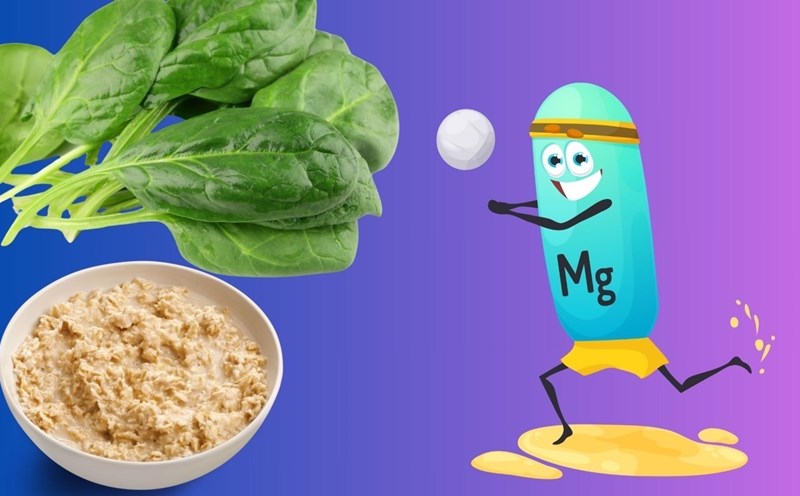A prolonged magnesium deficiency not only affects the nervous and muscular system but also increases the risk of cardiovascular disease, diabetes, osteoporosis and sleep disorders.
According to the World Health Organization (WHO), it is estimated that 75% of the population in some Western countries do not meet the recommended daily magnesium intake.In Vietnam, a diet lacking in green vegetables, overusing processed foods and a prolonged stressful lifestyle are also increasing the risk of potential magnesium deficiency.
Eat a variety of magnesium-rich foods
The most important key to supplementing magnesium is through your daily diet.Foods rich in magnesium include dark green leafy vegetables (spinach, kale), beans, pumpkin seeds, almonds, avocado, banana and whole grains.Dark chocolate (from 70% cocoa or more), in moderation, is also a good source of magnesium.A diet rich in magnesium not only helps improve nerve - muscle function, but also supports blood sugar control, blood pressure and sleep.
Use functional foods when necessary In many cases, especially in the elderly, people with gastrointestinal diseases or taking diuretic drugs, absorbing magnesium from food may not be enough.
Oral supplementation is a necessary choice, but requires the prescription of a medical professional.easy-to-absorb forms of magnesium such as magnesium glycinate or magnesium citrate are often more suitable for people with long-term supplementation needs.However, the dosage must be monitored to avoid causing diarrhea or electrolyte imbalance.
Limit factors that cause magnesium deficiency Some living habits can increase the risk of magnesium loss such as drinking a lot of alcohol, consuming too much caffeine, eating a lot of refined sugar, prolonged stress or using antibiotics, continuous diuretic.
Stress increases magnesium secretion through urine, creating a negative feedback: the more magnesium is deficient, the more easily the nervous system is irritated and stress lasts.
Soak your feet in Epsom salt - a relaxation therapy that supplements Magnesium can also be absorbed through the skin.
Soaking your feet or bathing in Epsom salt (magnesium sulfate) is used by many people to relax, improve sleep and reduce muscle tension.Mix about 1-2 cups of Epsom salt in a pot of warm water, steep your feet for 15-20 minutes in the evening.This method does not completely replace magnesium supplementation through diet but is a safe and easy-to-do supportive therapy.
Recommended daily magnesium intake: Adults: 310-420 mg (depending on gender, age, pregnancy); Children: 80-240 mg (depending on age).
Proactively supplementing magnesium properly will help the body function stably, increase resistance and improve the quality of life sustainably.










